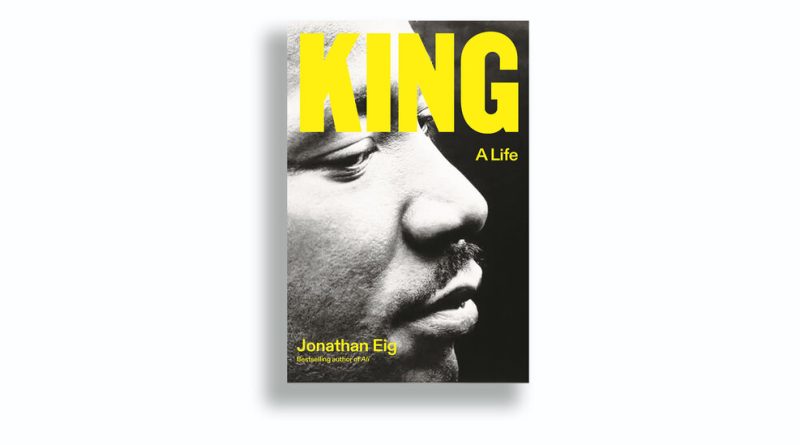Book Review: ‘King: A Life,’ by Jonathan Eig
[ad_1]
By this point in “King: A Life,” Eig has established his voice. It’s a clean, clear, journalistic voice, one that employs facts the way Saul Bellow said they should be employed, each a wire that sends a current. He does not dispense two-dollar words; he keeps digressions tidy and to a minimum; he jettisons weight, on occasion, for speed. He appears to be so in control of his material that it is difficult to second-guess him.
By the time we’ve reached Montgomery, King’s reputation has been flyspecked. Eig flies low over his penchant for plagiarism, in academic papers and elsewhere. (King was a synthesizer of ideas, not an original scholar.) His womanizing only got worse over the years. This is a very human, and quite humane, portrait.
Many readers will be familiar with what follows: the long fight in Montgomery, in which the world came to realize that this wasn’t merely about bus seats, and it wasn’t merely Montgomery’s problem. Later, the whole world was watching as Bull Connor, Birmingham’s commissioner of public safety, sicced police dogs on peaceful protesters. In prison, King would compose what is now known as “The Letter From Birmingham Jail” on napkins, toilet paper and in the margins of newspapers. Later came the 1963 March on Washington and King’s partly improvised “I Have a Dream” speech.
During these years, King was imprisoned on 29 separate occasions. He never got used to it. He had shotguns fired into his family’s house. Bombs were found on his porch. Crosses were burned on his lawn. He was punched in the face more than once. In 1958, in Harlem, he was stabbed in the chest with a seven-inch letter opener. He was told that had he even sneezed before doctors could remove it, he might have died.
Eig is adept at weaving in other characters, and other voices. He makes it plain that King was not acting in a vacuum, and he traces the work of organizations like the N.A.A.C.P., CORE and SNCC, and of men like Thurgood Marshall, John Lewis, Julian Bond and Ralph Abernathy. He shows how King was too progressive for some, and vastly too conservative for others, Malcolm X central among them.
As this book moves into its final third, you sense the author echolocating between two other major biographies, Robert Caro’s multivolume life of Lyndon Johnson and Beverly Gage’s powerful recent biography of J. Edgar Hoover, the longtime F.B.I. director.
King’s relationships with John F. Kennedy and Robert Kennedy were complicated; his relationship with Johnson was even more so. King and Johnson were driven apart when King began to speak out against the Vietnam War, which Johnson considered a betrayal.
[ad_2]
Shared From Source link Arts
